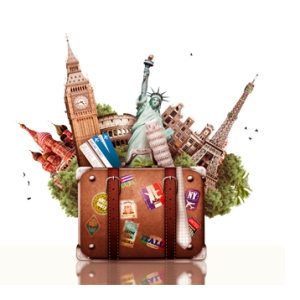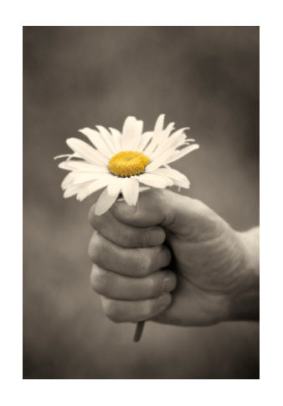 When I’m in a foreign country I try to stick with the local cuisine. I didn’t travel all the way to Thailand to eat pizza, although most menus offer it for the tourists who can’t hold their pad see ew. I make an effort to immerse myself in the culture and learn all about how the locals eat. However, two weeks into curry and rice for breakfast, lunch and dinner, I lost all control in the really touristy part of Phuket. I ordered my native cuisine: tortilla chips and guacamole. (True Los Angelinos refer to it in the familiar tense: “guac.” Chips are implied because how else are you going to get 30 grams of fat into your mouth?) My delicious contraband arrived via a waitress wearing a sombrero. I opted not to mention that the symbol of the sombrero has become derogatory to Southern Californians who think they are sensitive to Mexicans, and I just said, “Gracias.” She apologized and explained that her English was not very good. My margarita (“Marg” for those in the know) was a glass of lime juice so I asked for a shot of tequila. She also did not understand this So Cal linguistic gem. Confusing Thai waitresses in Mexican restaurants is my new favorite pastime.
When I’m in a foreign country I try to stick with the local cuisine. I didn’t travel all the way to Thailand to eat pizza, although most menus offer it for the tourists who can’t hold their pad see ew. I make an effort to immerse myself in the culture and learn all about how the locals eat. However, two weeks into curry and rice for breakfast, lunch and dinner, I lost all control in the really touristy part of Phuket. I ordered my native cuisine: tortilla chips and guacamole. (True Los Angelinos refer to it in the familiar tense: “guac.” Chips are implied because how else are you going to get 30 grams of fat into your mouth?) My delicious contraband arrived via a waitress wearing a sombrero. I opted not to mention that the symbol of the sombrero has become derogatory to Southern Californians who think they are sensitive to Mexicans, and I just said, “Gracias.” She apologized and explained that her English was not very good. My margarita (“Marg” for those in the know) was a glass of lime juice so I asked for a shot of tequila. She also did not understand this So Cal linguistic gem. Confusing Thai waitresses in Mexican restaurants is my new favorite pastime.
It turns out guac is a gateway drug. Drunk on jalapeños and cilantro, I forged ahead with fajitas and the guilt set in. This is not how I behave in other countries. I’m not that American who asks for ketchup or points out every McDonalds in excitement. For the record, I counted 43 Mickey D’s in two weeks. Thais are not immune to the “Sandwich for breakfast with pork.”
As a multi-lingual citizen of Earth (I can order red wine in nine dialects) I feel an obligation to behave differently in foreign countries. Thailand was a challenge. Showing anger is a sign of weakness in Thai culture. You can kick a puppy and spit in their green tea and they will still say “sah wah dee khrap!” (Which in my experience either means “Welcome” or “Gullible American in the house!”) You are not supposed to show your First World right to be annoyed when your shuttle to the elephant sanctuary is an hour late or your 4-star hotel room is infested with lizards, which you discover at 3 a.m. The staff will follow you around with their hands clasped in a bow that signals, “No matter how American you behave, we are going to smile and thank you.” How do you threaten to write a bad Yelp review with that going on? There is no place for entitlement in Thailand. It’s refreshing and challenging all at the same time, and I was doing my best to embrace the attitude of those around me. Absorbing myself in their culture was a good reminder to check my own mental outlook.
I was feeling guilty about sitting in a Mexican restaurant listening to “The Girl from Ipanema” playing on a loop on the jukebox. I was betraying my travel-goddess integrity when I should have been slurping up noodles in coconut milk. And then my fajitas arrived, sizzling their love to me on a hot plate. I grabbed a tortilla and created the perfect balance of salsa, sour cream and guac like an expert and took my first glorious bite. Something was not right. Further inspection revealed that the chicken was coated in peanut satay sauce. Most entertaining Mexican restaurant ever.
I have promised to take my niece and nephews travelling with me when they are teenagers. They have decided that means thirteen. I was thinking more like sixteen but I’ve lost that battle on a technicality. While my mind contemplated my opportunity as an aunt to expose them to the world in a way that won’t teach them to be entitled, an Australian blonde in a bikini loudly announced that the glass of lime juice was the best margarita she had ever had. As an Aussie myself, I can confirm that an Australian wouldn’t recognize Mexican food if they sat on it. I decided that this was enough ridiculousness for one day. We all have our limits. I stepped out into a street that bore an unfortunate resemblance to Tijuana, passed the Burger King in my hotel lobby, and fired up the wifi to make a reservation at a guest house in a remote fishing village I had never heard of . . . where I could be guaranteed curry and rice for breakfast.






